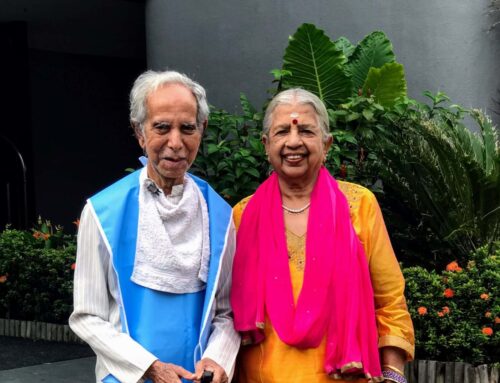Christmas inspiration takes a note from many cultures
Our largely Hindu community in Bangalore, India, is practising Christmas carols and I am trawling the world for inspiration. I like the majestic rendition of Joy to the World, by the Mormon Tabernacle Choir but I don’t like their slower songs.
For soulful songs such as Silent Night, I prefer the African American choirs that truly own gospel. I like the Boys Choir of Harlem’s jazzy, if untraditional renditions. As for Hark, the Herald Angels Sing, it has to be heard in a church with the majestic organs in full swing. Tinny CD versions simply don’t do justice to this carol.
And OK, I’ll admit it, I am partial to Andrea Bocelli’s version of Gloria in Excelsis Deo. What is it about Italians singing Christmas carols that make these songs sound so romantic? Luciano Pavarotti’s Oh Come all ye Faithful is barely understandable but will draw you to a church anyhow.
I used to attend midnight mass every Christmas when I lived in America. We were freezing cold in the depth of winter so going to a cheery warm church made sense. We would bundle up in our winter coats and walk or drive to churches all over New York, searching for the best choirs. Some were around the corner; others, an hour away. I went for communion, but I also went for inspiration.
The word inspiration literally means “breathed upon”. Ancient religions – Hebrew, Norse, Hellenistic, Aramaic and Hindu – all believed that inspiration was a gift from God. Most choral music is inspiring because it depends on the human voice for its rendition. This, in the end, is why I attend choirs: to get ideas and inspiration.
There are many Sanskrit words for inspiration, according to the Spoken Sanskrit dictionary, but several have an element of breathing in: prana, svasa, prerana. Poets like Coleridge and Shelley believed that inspiration was a divine wind that blew ideas into the creator’s mind.
In her TED lecture, Elizabeth Gilbert, author of Eat Pray Love, talks about genius in the same vein. In ancient cultures, she says, genius wasn’t something you were but something that was bestowed upon you. Creativity was not about being a genius but having genius.
The Greeks looked to muses for inspiration. Old Norse religions prayed to Odin the Wanderer to bestow them with creativity. Odin fathered many sons, including Thor, the god of thunder and lightning (and, incidentally, also a sculptor who I had a crush on).
Divine inspiration may have served our ancient poets well, but what if you have a tenuous connection to religion? I am not a “good” Christian and while I love choral music, I don’t get high on the religion from which it springs. Then again, I am not a “good” Hindu either. How then to get the divine wind to blow upon you? I believe I might have a solution for you. Take a walk.
Paradoxical as it seems, inspiration can be orchestrated, particularly in chaotic democracies like India, where magical moments are a moment away. Walking helps with fitness; it collects Vitamin D (and I have been hearing about Vitamin D deficiency in women) from the sun; and it is inspiring.
Recently, I took a walk down my street and saw a tree growing from the second storey of a building – a sacred fig tree, no less. I looked around to find its roots but the building was locked. So you have this beige facade of a crumbling building with a tree growing from it. It was like a surrealistic painting.
Eastern streets are full of these surprising sights that can make you laugh and inspire you at the same time. The trick is to put yourself in situations that afford an element of surprise; that take your breath away – or as the ancients would have it, that blow inspiration into you.
Shoba Narayan is the author of Monsoon Diaries, a memoir with recipes



Leave A Comment